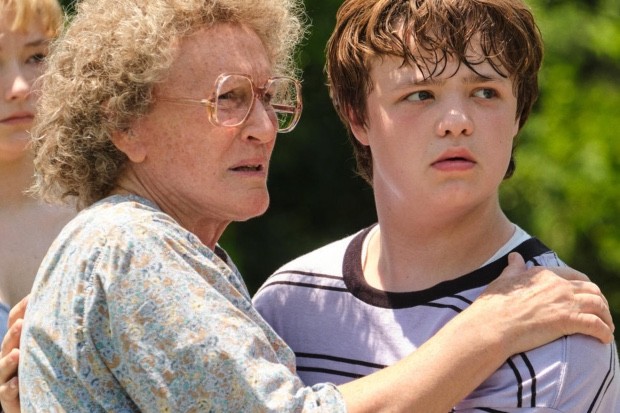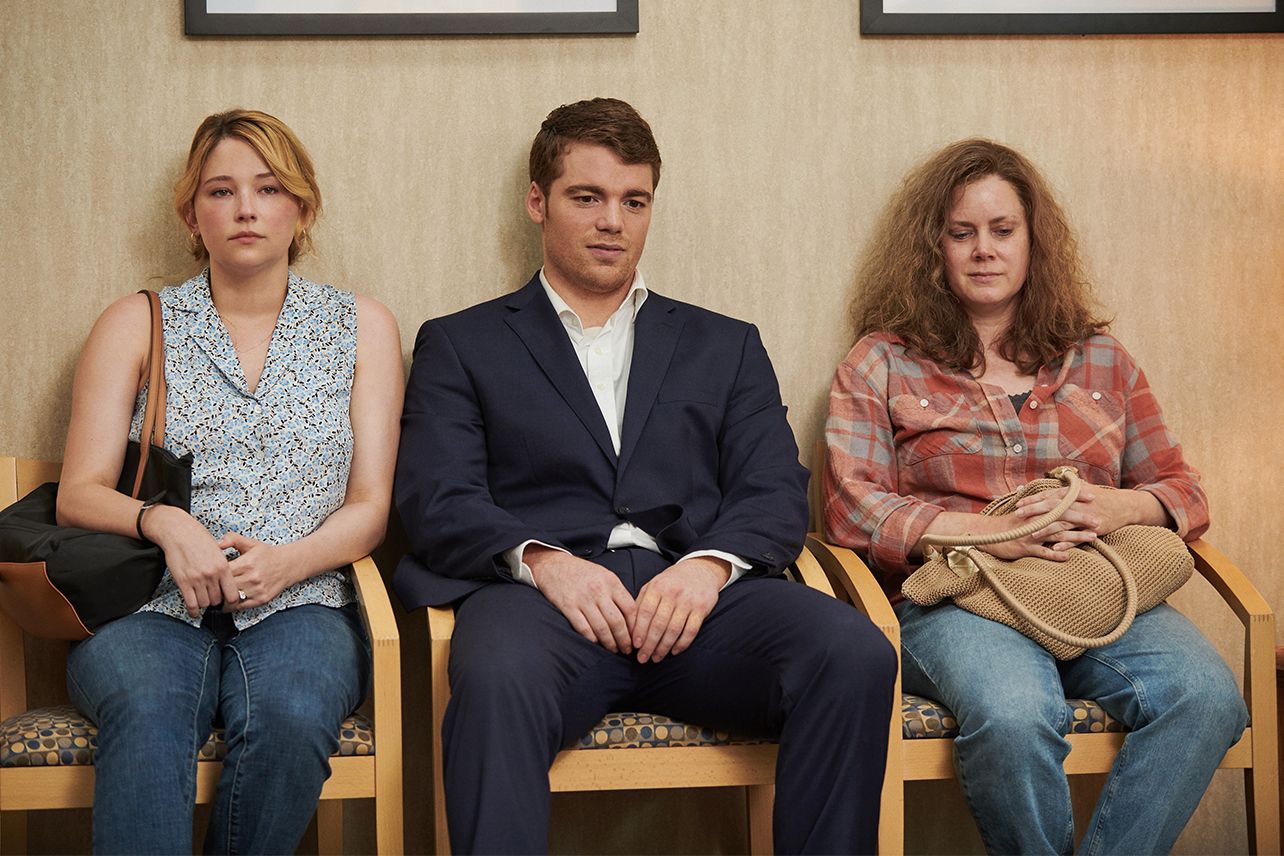 By Jacob Sahms
By Jacob Sahms
In the late 1990s, a smart Appalachian teen finds his place in the world thanks to a knack for algebra and the hard knock home education he receives from his family. In bittersweet terms, his life is both a representation of the struggle of poor America and the culmination of generations of family aimed at providing better for their dependents. This is the story of J.D. Vance’s Appalachian upbringing, how one bullied teenager became the man who was Marine, aide to a state senator, Yale Law grad, and venture capitalist.
Netflix’s Hillbilly Elegy recounts Vance’s Appalachian upbringing in cinematic form, with big names in front of and behind the camera. Director Ron Howard (Apollo 13, A Beautiful Mind, Cinderella Man) uses Vanessa Taylor’s (The Shape of Water, Aladdin) screenplay to highlight the way Vance’s (Gabriel Vasso, Owen Asztalos) life was shaped by his mother, Bev (Amy Adams), and grandmother, Mamaw (Glenn Close). Powerfully acted and wonderfully emotive, the film is The Fighter sans boxing transposed from New England to the Midwest, or Winter’s Bone without the violence. It’s a reminder that the struggle is real, not bound by the statistics we read or the vignettes we’re shown on the nightly news. Sometimes, surviving must be our focus until we reach a place where we can thrive.
Watching the film, told in flashbacks to the teen years and present day drama as Vance wrestles with law firm interviews after Yale, the struggle is real. One can see the great odds that Vance fought to get to where he is – but how they are comparable to the struggle that Americans around the United States have in terms of political, financial, and social hurdles. But those struggles are not an excuse to give up or give in to the pressures, or worn-out ruts of previous decisions and expectations. If anything, Hillbilly Elegy demands that the audience consider what it means to overcome – for oneself and for one’s family.
 So many of the lessons, taught with profanity flying and in the midst of terrible struggles with various drug abuse and domestic violence, are learned by the younger Vance even when he doesn’t realize he’s learning lessons. He’s just trying to be a teenager while his mother is wrestling with broken relationships and repeated failure, a cycle she inherited from her mother. But from these two women, and his sister Lindsay (Haley Bennett), Vance learns that family is everything, and that it must be protected and fought for regardless of the cost.
So many of the lessons, taught with profanity flying and in the midst of terrible struggles with various drug abuse and domestic violence, are learned by the younger Vance even when he doesn’t realize he’s learning lessons. He’s just trying to be a teenager while his mother is wrestling with broken relationships and repeated failure, a cycle she inherited from her mother. But from these two women, and his sister Lindsay (Haley Bennett), Vance learns that family is everything, and that it must be protected and fought for regardless of the cost.
Still, the greater lesson learned may be one of forgiveness. Lindsay is the one to articulate the action and reaction of the family members over time, to gradually pull the next generation farther along. “If you don’t forgive her, you’re never going to get out of what you’re trying to get out of,” she tells her brother one day. Vance doesn’t get it all at once because life doesn’t work like that; it’s a gradual climb not an instant download. It’s what jives with a “last rite’s” moment that Vance delivers via I Corinthians 13:12, “For now we see through a glass, darkly; but then face to face: now I know in part; but then shall I know even as also I am known.” This is true of the everlasting, but it’s also the truth of the life we live — we don’t know all of the wisdom upfront, but gradually, if we’re willing, we grow in understanding of each other and of God.
Hillbilly Elegy reminds us again and again that life is meant to be lived, to be shared, and to be celebrated, even if the moments along the way are challenges that threaten us to our core.
Hillbilly Elegy is rated R for language, drug use, and some violence. It releases November 11 in select theaters and on Netflix on November 24.




